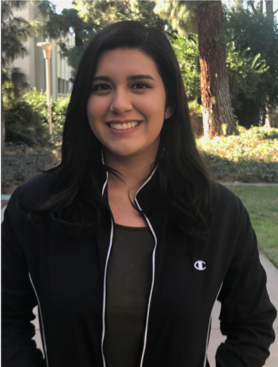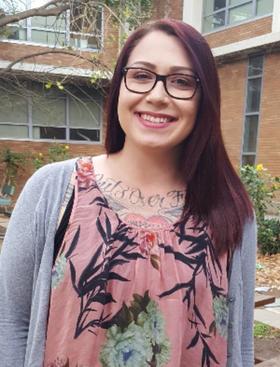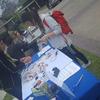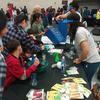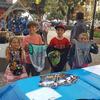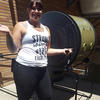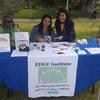Katherine Avila
As a result of increasing consumption, waste, pollution, and population, the climate is going through drastic changes that poses a risk to the survival of the human race. Through the application of sustainability, we as contributors to climate change, must ask ourselves what can be done to hold up the environment for future generations. Sustainability means living within the resources available on the planet without damaging the environment for present and future generations.
In addition to this goal, sustainability aims to see that environmental resilience, resistance, and recovery goes through. As an intern for The EDGE Institute at UCR, my goals within the institute are to improve recycling habits on campus and raise awareness about the importance of individualization of responsibility through recycling. Although recycling is not the ultimate solution to surviving climate change, it is a simple lifestyle change that mass amounts of people can to do to make a difference in waste production. Through my projects, I hope to create more efficient methods of recycling so that students, staff, faculty, and visitors on campus may further realize how much of an impact a simple act of separating waste can do. I am currently working on increasing the number of recycling bins, mostly throughout the science buildings on campus.
After careful observation, I have come to see that many people on campus disregard the signs that specifically ask for only recycled paper or only recycled bottles and cans, therefore mixing recycling materials and slowing down the process of separation. I have also come to observe that those who contemplate whether to recycle or to produce more trash, are stuck between the two choices because they do not have the sufficient knowledge to decide if their waste is deemed recyclable. This brings me to my other project that addresses the behavioral issues of those who contemplate recycling. I hope to understand which materials are questionable for recycling and at what point recycling becomes too much “hard work” for a person, so that I may pursue plans of creating easier ways of recycling without the contemplation. The interconnection between population, consumption, and waste is one that should be taken into consideration when practicing sustainability. With help from The EDGE Institute, the study and application of sustainability will soon be an institutionalized method that eases environment issues.
Stephanie Cleese
Composting at the Transfer Station. This project has to goal to increase the amount of food waste UC Riverside is collecting by expanding food waste collection bins to the entire campus (not just those using dining services). The EPA estimates that about 22 percent of everything that goes in the trash is food waste. Using this estimation in combination with the University’s waste audit from the 2015-16 FY, we can increase the amount of food waste we collect by an additional 198 tons per year with the installation of food waste bins on campus.
Using Mantis Tumblers placed at the Transfer Station (located in the back of parking lot 30). Stephanie will be measuring the rate of the composting process in order to determine feasibility of transitioning the University’s food waste stream to an on campus process. This is in lieu of the University’s current process of sending food waste to an off-site composting facility, located roughly 60 miles away at the American Organics facility in Victorville. Additionally, Stephanie will be testing different combinations of food waste and determine which combinations emit the most Carbon and Methane emissions using the EDGE Institute’s newly purchased van that is equipped with Carbon dioxide and Methane analyzers. This is data she will be using for a biogas feasibility project taking place at the R’Garden later in the year that is in collaboration with Engineers Without Border (EWB), the American Institute of Chemical Engineers (AIChE), and CE-CERT ( Center for Environmental Research and Technology ) which has the longer term goal of purposing all food waste to a biodigester in order to capture the Carbon and Methane normally released into the atmosphere during the (aerobic) composting process.
Savings from adopting these projects at a University wide level are estimated at $32,783 / year. This does not include the potential earnings from biogas generation. Additionally, these projects are in line with the goals of California’s 75 percent initiative and the University of California’s goal to be carbon neutral by 2025.

